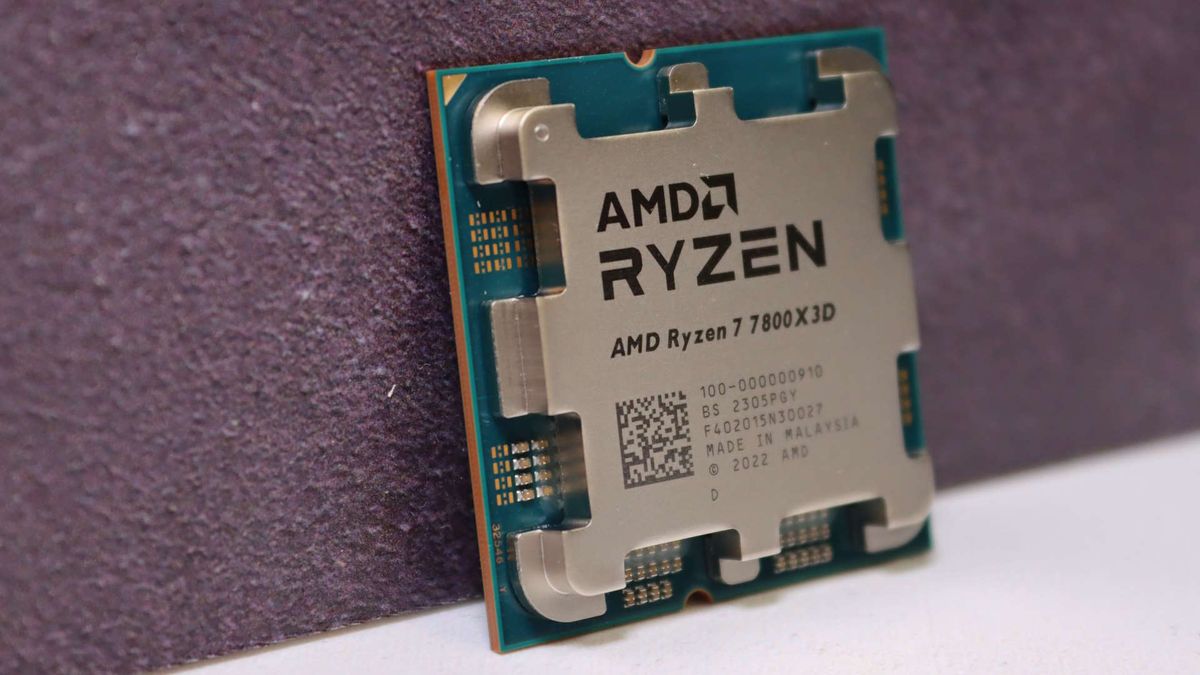AMD has told us not to expect an end of life announcement for the Ryzen 7800X3D “anytime in the near future” despite the launch of a replacement for the erstwhile best CPU for gaming. Donny Wolligrowski told us in a recent briefing that he “would expect it in the market for a while”.
Which is grand, because AMD’s Ryzen 7 7800X3D has been our pick as the best gaming CPU for a hot minute, even if that crown has slipped due to the recent launch of the second-gen 3D V-Cache chip, the Ryzen 7 9800X3D.
But though the two processors are pretty similarly priced right now, with barely the price of a beer between them, the older chip is likely to drop back down to near the $350 mark around Black Friday and that’s going to make peoples’ decision on a new CPU upgrade a little tougher.
They’re both AM5 CPUs, for one, and the Ryzen 7 7800X3D is able to deliver gaming performance not a million miles short of the new champ, and certainly way beyond any comparable $350 processor.
The newer Ryzen chip is able to deliver higher clock speeds across its eight Zen 5 cores than the eight Zen 4 cores of the older CPU, that’s because the Ryzen 7 7800X3D is wearing its extra 64 MB of L3 cache like a hat instead of it being a foundation as in the new processor design. And why do we wear hats? Because lots of our heat goes out the top of our heads, right? And the same is true with gaming CPUs.
Stick with me on this.
The chiplet which holds the AMD CPU cores, the core complex die (or CCD), is the component inside the chip package which generates the most heat, and when it’s wearing its cache hat that stops the heat from getting out and into the heatspreader atop it. Essentially the stacked L3 cache chip, and the surrounding structural silicon, act as insulation for the cores, limiting the heat exchanging properties of your CPU cooler.
That’s why first-gen 3D V-Cache chips have lower clock speeds than their more cache-lite brethren, and why on the dual-CCD CPU, the Ryzen 9 7950X3D, one CCD is clocked lower than the other.
With second-gen 3D V-Cache that’s been turned upside down, with the extra L3 cache layer sitting below the core chiplet, allowing that to have direct connection with the heatspreader and therefore closer contact to the CPU cooler.
But, when it comes to gaming performance, the Ryzen 7 7800X3D still delivers more than healthy frame rates, and better than equivalently priced Zen 5 CPUs when you’re talking about the older chip being available around the $350 point.
Normally, you’d expect with the launch of a new chip for the previous generation to start to filter away, which generally means stock gets tighter and the likelihood of deals gets less. But with AMD’s assertion that the Ryzen 7 7800X3D is going to stick around “in the market for a while” it does sound like there’s going to be plenty of stock in the channel to be able to deliver generous last-gen discounts.











